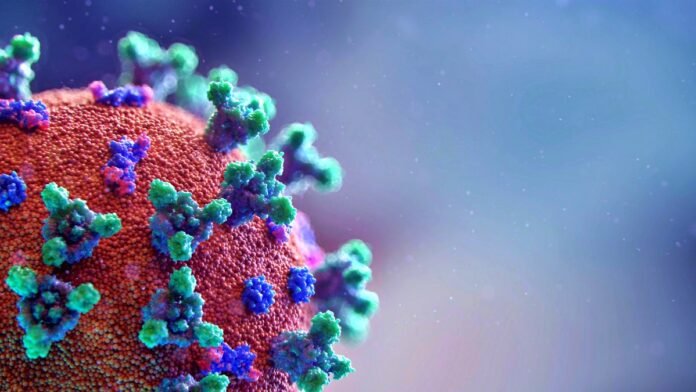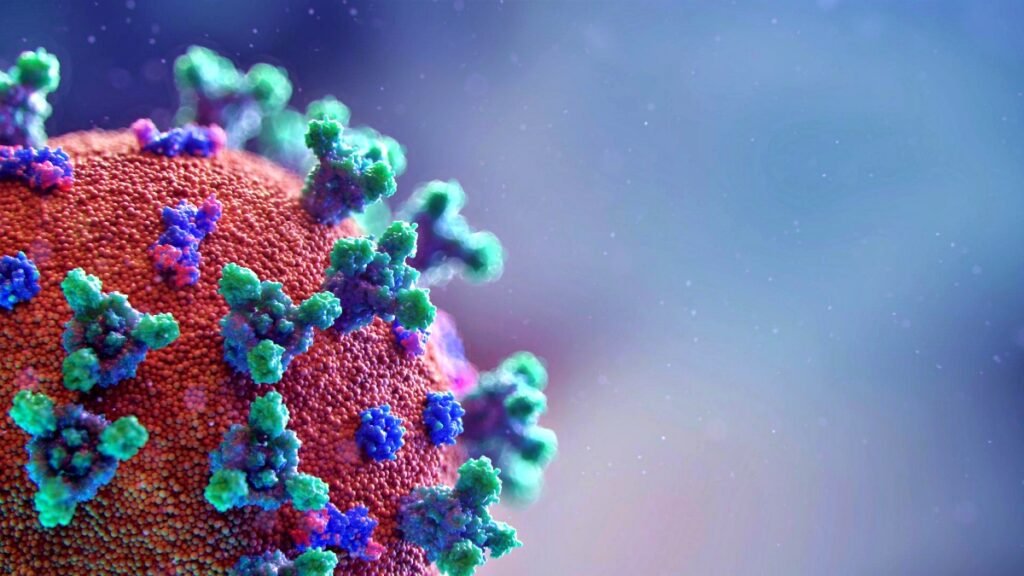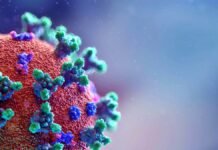
New Delhi: India recorded 594 new COVID-19 cases and six deaths on Thursday, December 21, 2023, as the country grappled with the emergence of a new subvariant of the coronavirus, JN.1, which has been detected in 25 people so far. The health ministry said that there was no plan to make Covid testing mandatory at airports as of now, despite the surge in infections in the US and China due to the subvariant.
Covid situation in India
According to the health ministry data updated at 8 am, the number of active COVID-19 cases increased to 2,669 from 2,311 in the last 24 hours. The total number of cases now stands at 4.50 crore, while the death toll has reached 4.51 lakh. The recovery rate stands at 98.32 per cent.
The six deaths reported on Thursday were from Kerala (3), Karnataka (2) and Punjab (1). In the last two weeks, India has recorded 22 Covid-related deaths. However, the health ministry said that there was no increase in hospitalisation rates and Covid-19 was an incidental finding in people hospitalised due to other medical conditions.
On Wednesday (December 20), India recorded the highest number of daily cases since May 21, at 614. The highest number of cases were reported from Kerala (216), followed by Maharashtra (115), Tamil Nadu (59), Karnataka (55) and Delhi (38).
The health ministry also said that more than 144 crore vaccine doses had been administered so far, with over 87 per cent of the eligible population receiving at least one dose and over 62 per cent receiving both doses.
JN.1 subvariant in India
The JN.1 subvariant, which has been classified as a separate ‘variant of interest’ by the World Health Organization (WHO), has been detected in 25 people in India, according to official sources. The subvariant is a descendant of the Delta variant and has mutations that may affect its transmissibility and immune escape.
The first case of JN.1 in India was found in Kerala on December 8. Since then, 19 cases have been traced in Goa, four in Rajasthan, and one each in Kerala and Maharashtra. The Rajasthan government confirmed four cases of JN.1 on Thursday and issued a health advisory, asking people to follow Covid-appropriate behaviour and report any symptoms.
The health ministry said that it is not yet known if the JN.1 infection produces symptoms different from other variants. There is also no indication of increased severity and, at this time, no evidence that it presents an increased risk to public health compared to other circulating variants.
The existing treatment line for Covid-19 is expected to be effective against JN.1 infection and updated vaccines are expected to increase protection against the variant, the ministry said.
Dr VK Paul, NITI Aayog member (health), said that the scientific community in India is closely investigating the new variant. He, however, stressed the need for states to ramp up testing and strengthen surveillance systems. He also urged the Centre and the states to maintain constant vigil, including monitoring and reporting district-wise cases of influenza-like illness (ILI) and severe acute respiratory illness (SARI) in all health facilities regularly for early detection.
Scientists, however, said that the emergence of the variant and the 25 cases in India is neither surprising nor particularly worrying. Experts said that there is no need to panic as available treatments are effective and the infection is mild.
“As it happens with most respiratory viruses, including the influenza viruses, the circulating viruses keep changing. Therefore, a sub-variant of SARS CoV-2 is not a surprise at all,” Dr Chandrakant Lahariya, a senior consultant physician and public health expert, told PTI.
The WHO has also said that the global public health risk posed by JN.1, based on the available evidence, is currently evaluated as low. “In India, people have already been exposed to various sub-variants, including Omicron variants, and received at least two shots of COVID-19 vaccines. There is no renewed risk of SARS-CoV-2 variant or subvariant causing severe illness,” Dr Lahariya said.
JN.1 subvariant in other countries
The JN.1 subvariant was first detected in Denmark and Israel in late July. The US Centers for Disease Control and Prevention (CDC) said earlier this month that JN.1 makes up about an estimated 15 to 29 per cent of cases in the US as of December 8. The subvariant has also been reported in Canada, France, Germany, Italy, Japan, South Korea, Spain, Sweden, Switzerland and the UK.
Last week, China detected seven infections of the new subvariant in the eastern province of Zhejiang, where a new wave of COVID-19 cases has prompted lockdowns and mass testing. The Chinese authorities said that they have traced the origin of the JN.1 cases to a cargo flight from Canada that arrived in Hangzhou on December 4.

The health ministry said that there was no plan to make Covid testing mandatory at airports as of now, despite the surge in infections in the US and China due to the subvariant. The ministry said that it is closely monitoring the situation and taking all necessary measures to prevent the spread of the virus in India.
The ministry also advised travellers to follow the guidelines issued by the respective states and union territories regarding COVID-19 testing and quarantine. The ministry said that international travellers should also adhere to the requirements of the self-declaration form and the air suvidha portal.


















































